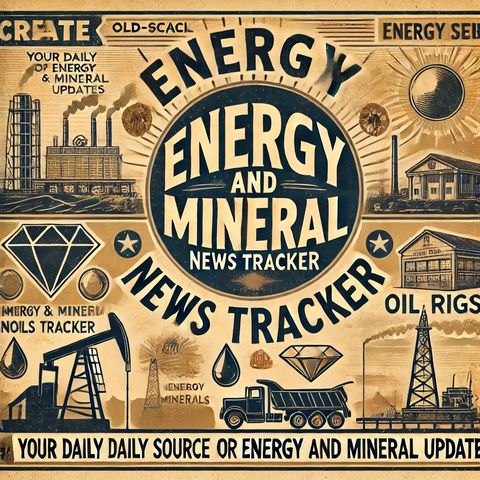Tapping the Untapped: Unlocking Lithium from Energy Wastewaters for a Sustainable Future

Download and listen anywhere
Download your favorite episodes and enjoy them, wherever you are! Sign up or log in now to access offline listening.
Tapping the Untapped: Unlocking Lithium from Energy Wastewaters for a Sustainable Future
This is an automatically generated transcript. Please note that complete accuracy is not guaranteed.
Description
Lithium is the lightweight champion of the periodic table; one of the universe’s lightest elements, it is playing a crucial role in the transition to low-carbon technologies. From electric vehicle...
show moreOne intriguing and environmentally friendly source of lithium could be energy wastewaters. These wastewaters, often produced as byproducts of oil and gas extraction processes, contain diluted traces of lithium. Traditional lithium extraction methods primarily focus on hard rock mining and salar brine pools, both of which carry significant environmental footprints. In contrast, repurposing energy wastewaters could offer a dual benefit: sourcing a valuable element while mitigating environmental pollution.
Recent studies have shown that treating and filtering these wastewaters can isolate lithium ions efficiently. This discovery is particularly significant in regions rich in oil and gas operations but lacking in natural lithium deposits. By leveraging existing infrastructures, these areas could transform their environmental liabilities into economic assets. Advanced extraction techniques, such as ion exchange and membrane filtration, are being adapted to specifically target lithium ions in these complex wastewater matrices.
The potential economic benefits are substantial. By extracting lithium from energy wastewaters, companies could reduce the need for traditional mining, decreasing their carbon footprint and lowering operational costs. This method could democratize the supply of lithium, making it more accessible and affordable, which is crucial for scaling up low-carbon technologies globally.
Moreover, embracing this innovative approach aligns with the principles of the circular economy. It emphasizes the importance of reusing and recycling materials, thus minimizing waste and reducing the environmental impact of industrial processes. The ripple effect of this could be vast, influencing policy decisions, incentivizing sustainable practices, and driving further innovation in the field of resource recovery.
However, challenges remain. The concentration of lithium in energy wastewaters is relatively low compared to traditional sources, necessitating highly efficient extraction technologies to be economically viable. Additionally, the chemical composition of these wastewaters can vary significantly, posing operational challenges that need to be addressed through tailored engineering solutions.
Nevertheless, as the urgency to transition to sustainable energy intensifies, the exploration of unconventional sources of lithium presents a promising frontier. It encourages a rethink of waste: not as an inevitable byproduct but as a reservoir of untapped potential.
The shift toward viewing energy wastewaters as a "lithium mine" could transform industries and herald a new era of sustainable resource management. As research and technology advance, this novel approach may well become an integral part of the global lithium supply chain, contributing to a cleaner and greener future.
Information
| Author | QP-4 |
| Organization | William Corbin |
| Website | - |
| Tags |
Copyright 2024 - Spreaker Inc. an iHeartMedia Company
